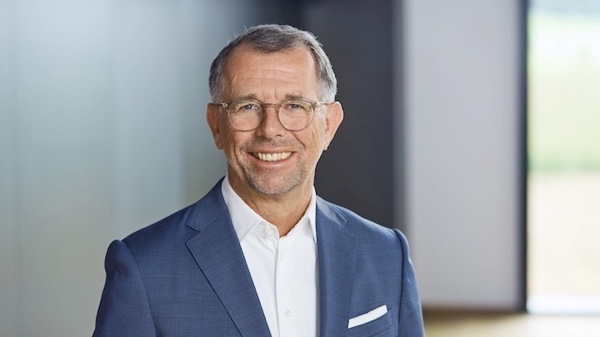Packaging
Machine manufacturers are counting on strong impetus from interpack 2023

Friday 19. May 2023 - As the worlds population continues to grow, food processing and packaging machinery remains in high demand. Even in the difficult year 2022, the companies in the sector recorded a production growth of 7 percent to 15.8 billion euros in Germany.
This means that the fourth-largest branch of mechanical and plant engineering in Germany exceeded its pre-crisis level of 15.3 billion euros in 2019. Packaging machines accounted for just under half of the turnover – the largest exhibitor group at the world’s leading trade fair, interpack. “Even in the difficult year 2022, the demand for our machines remained high. This is primarily due to the fact that food processing and packaging machines make a decisive contribution to the safe supply of food, beverages and pharmaceutical products to a growing world population,” explained Christian Traumann, Chairman of the Food Processing and Packaging Machinery Association, at the VDMA press conference on the occasion of interpack, which is held in Düsseldorf until 10 May.
According to the VDMA Food Processing and Packaging Machinery Association, growth could have been even higher, but the economic recovery was significantly slowed down by the continuing difficulties in the supply chains and by the Russian war of aggression in Ukraine.
“The war in Ukraine, with all its consequences – rising energy prices, inflation and the associated interest rate policy – created uncertainty, especially in Europe, which was reflected in a reluctance to invest,” explained Traumann, looking back at the order intake in 2022, which fluctuated sharply from March onwards.
Exports slightly down – USA leads, China with strong growth
The industry’s foreign deliveries dropped by 1.7 percent to just under 9 billion euros in 2022. Exports to the EU-27 fell by 4 percent, and to the Other Europe region by 8 percent. Overall, 49 percent of German deliveries went to European countries, 34 percent of them to the EU.
More than half of the exports were delivered to countries outside Europe, with a focus on North America and Asia. For many years, the USA has been by far the most important market. In 2022, food processing and packaging machinery worth 1.4 billion euros was shipped to the USA, which corresponds to a 16 percent share of total exports. Conversely, Germany is the most important supplier of food processing and packaging machinery for the USA – ahead of Italy, Canada and China.
Exports to China as the second most important market increased by 11 per cent to a record 605 million euros, despite the zero-covid strategy there and the associated travel restrictions. “This shows that our products are still in high demand in the Chinese market. High-performance machines and process engineering know-how secure our market position here,” said Traumann. He emphasised the importance of China for German and European mechanical engineering. Overall, demand from abroad remained high with strong impulses from individual markets, including Japan, India, Mexico, Egypt, South Africa and Nigeria.
In international foreign trade, 65 percent of all exported food processing and packaging machinery comes from the EU-27 countries (2021). This makes this branch of industry the export champion of European mechanical engineering. Germany and Italy are at the top of the list, each with a 20 percent share of world machinery trade.
Prospects and challenges
The market continues to provide a tailwind for companies in the food and packaging machinery industry, if only because of the rising global population. Order intake in 2022 also rose by 5 percent in real terms, primarily driven by non-European countries. “Our order books are still well filled and we also expect strong impetus from interpack. However, we cannot estimate how the geopolitical risks, inflation and the associated interest rate policy in the individual countries will affect investments and thus our business development,” said Traumann. Another challenge is the shortage of skilled workers, which represents a severe bottleneck for a good two-thirds of industry companies according to the VDMA survey of March 2023.
The Food Processing and Packaging Machinery Association puts the sales forecast for the current year at a plus of 8 to 10 per cent – also due to the high order backlog.
Mechanical engineering needs less bureaucracy and open markets
Christian Traumann appealed to politicians to do more to reduce bureaucracy and open markets. “If a transformation of the manufacturing industry is to succeed, we must not be overwhelmed with regulations, but must be supported by policies that promote industry and small and medium-sized enterprises. Innovation needs entrepreneurial freedom and competition,” he said, referring to slow approval procedures in Germany and current and upcoming EU regulations.
Traumann stressed the immense importance of open markets for the international success of mechanical engineering. In an increasingly protectionist environment, he said, the EU must focus on free trade agreements with its most important trading partners. Only then can new barriers be prevented from being erected for European industry. The VDMA trade association chairman appealed to politicians and the industry to continue to use the potential of the Chinese market: “We need China as a sales market and we also need products from China. And China needs the EU market. We should not forget that and represent our own industrial and location policy interests to a greater extent than before.”
The entire industry expects positive impulses from the world’s leading trade fair, interpack. “Trade fairs are a mirror of open markets. We are very much looking forward to the international supplier industry presenting its innovations at the most important industry platform after a six-year break and to all of us finally being able to discuss requirements and trends with customers from all over the world in a personal exchange again,” Traumann summed up.
